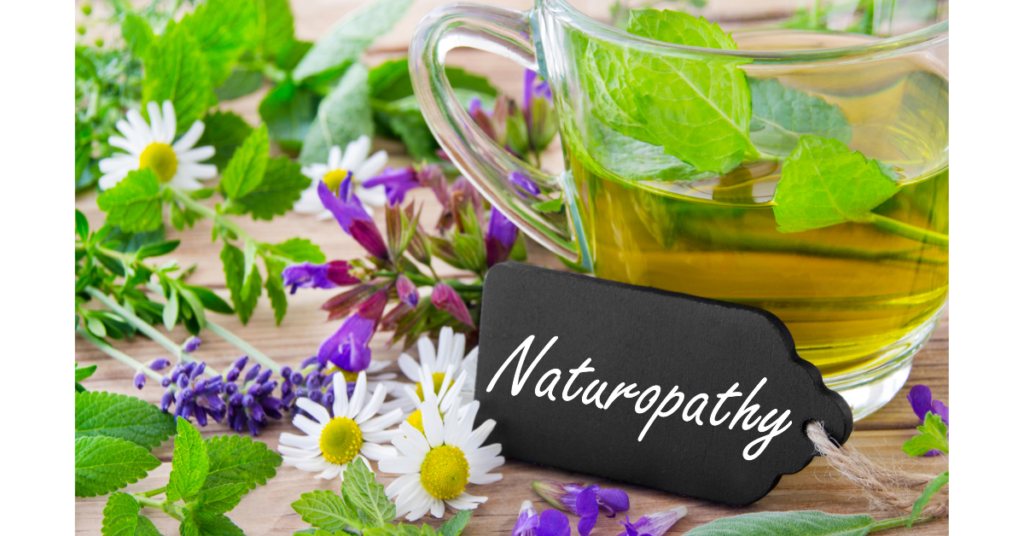Naturopathy
Also known as ‘natural medicine’, naturopathy works along the principle that the body can heal itself. Treatment includes diet, herbal preparations, exercise, massage, and hydrotherapy, along with many other disciplines.
This document provides general information of what to expect when you visit a therapist, and a general theory behind how the discipline works. It must be noted, however, that every therapist works in an individual way, and may subscribe to slightly different theories on how the discipline works. It is always advised that you ask to see relevant qualifications and discuss the treatment offered to you by the practitioner if you are in any doubt whatsoever.
What is Naturopathy?
Naturopaths believe that the body heals itself and is always striving for balance, referred to as ‘homeostasis’. They see illness as the end result of a weakened ‘vital force’, sometimes called ‘life energy’, believing that when the body is overloaded with toxins the body has great difficulty in maintaining balance; the immune system is overburdened and starts to break down rendering the body susceptible to viruses, bacteria, and allergens.
There are a many number of things and situations that can overburden the body; lack of sleep, poor diet, emotional and physical stresses and strains, alcohol and drug abuse, lack of exercise, negative outlook, and so on.
Naturopaths see symptoms of illnesses as a sign that the body is healing itself, and they get to work on the possible underlying causes of illness in an attempt to lessen the chances of re-infection or recurrence of the illness. They would never suppress a symptom because they believe that to do so would only push the illness ‘underground’ and result in chronic illnesses.
Most naturopaths use a variety of techniques with others specialising in a particular discipline. The most commonly used treatments include:
Diet: There is a drive to eat unrefined, preferably organic fresh fruit and vegetables. Dietary advice is given to those with conditions that are aggravated by certain foods, and fasting is sometimes suggested.
Hydrotherapy: A treatment involving water, including the use of baths and spritzes of varying water temperatures believed to improve circulation and boost vitality.
Physical therapies: These are used to help support the bodies healing powers and include osteopathy, chiropractic, massage, physiotherapy, reflexology, acupressure, Shiatsu, yoga, herbal medicine, homeopathy, Traditional Chinese Medicine (TCM), and simply getting out in the fresh air.
Main Uses
Long term illnesses, such as arthritis and asthma.
High blood pressure.
Gastrointestinal problems, like ulcers, IBS, chronic constipation.
Hardening of the arteries.
Depression, fatigue and stress.
What to expect when you visit a therapist
You will be asked questions relating to your medical history and perhaps that of your immediate family. Lifestyle questions, such as stress levels, diet, exercise regimes, and sleep patterns will be asked to ensure that an holistic approach is taken as well as asking you, the patient, what expectations you have of the treatment.
You will be given a series of tests including blood pressure, urine tests, and examination of your irises (iridology). Further tests include analysing sweat and hair, and perhaps muscle testing. Broadly speaking you will either be diagnosed as having a condition the treatment for which will either be Catabolic – cleansing, or Anabolic – strengthening.
Catabolic is the treatment given to those who have a build-up of toxins, and the treatment usually includes fasting. With anabolic treatments, the patient is prescribed a dietary change and /or nutritional supplements to take.
You may also be given advice on breathing, on which exercise is best suited to you, details on how to ‘skin brush’, and possibly counselling; it really depends on what your naturopath focuses upon. After commencing treatment, you may experience what is termed a ‘healing crises’, which is where the body gets worse before it gets better. However, naturopaths view this as normal, believing that this is often a good sign that things are shifting.
History (in brief)
Both Ayurveda and TCM believe the body has its own healing abilities, so the principles of naturopathy have common ground with other systems of health and well-being. The ‘life energy’ is termed ‘vital force’ by naturopaths. The Greek physicians maintained that the body needed exercise, plain food in small amounts, and rest for it to perform well and stay healthy. The term ‘naturopathy’ was used by Dr John H Scheel, a German physician in New York in 1895. It is thought that the emphasis on fresh air, exercise, and sunlight in the spa towns of Austria and Germany in the 19th century were the real basis for naturopathy or ‘nature-cures’.
Claude Bernard, a French physiologist, developed the concept of homeostasis, and Benedict Lust introduced naturopathy to the US in the 1890’s.

